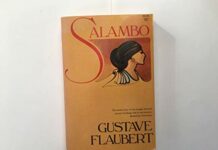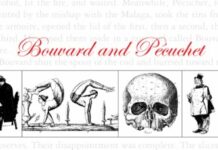
Ebook Info
- Published: 1968
- Number of pages: 96 pages
- Format: EPUB
- File Size: 0.71 MB
- Authors: Gustave Flaubert
Description
Jacques Barzun’s masterful translation proves that Flaubert’s Dictionary of Accepted Ideas—an acid catalogue of the clichés of 19th-century France—is as relevant today as ever.Throughout his life Flaubert made it a game to eavesdrop for the cliché, the platitude, the borrowed and unquestioned idea with which the “right thinking” swaddle their minds. After his death his little treasury of absurdities, of half-truths and social lies, was published as a Dictionnaire des idées reçues. Because its devastating humor and irony are often dependent on the phrasing in vernacular French, the Dictionnairewas long considered untranslatable. This notion was taken as a challenge by Jacques Barzun. Determined to find the exact English equivalent for each “accepted idea” Flaubert recorded, he has succeeded in documenting our own inanities. With a satirist’s wit and a scholar’s precision, Barzun has produced a very contemporary self-portrait of the middle-class philistine, a species as much alive today as when Flaubert railed against him.
User’s Reviews
Reviews from Amazon users which were colected at the time this book was published on the website:
⭐Flaubert is not generally someone you may associate with being a laugh, but The Dictionary of Accepted Ideas is hilarious. For decades now, it has been my secret weapon, as I held onto my worn out copy of a used bookstore edition I had. Only a few knew it existed, and only the elect knew what it was, and we would quote from it and share the joy between ourselves. (I knew it as the Dictionary of Received Opinion, which might capture the English contents a bit better.)New Directions paperbacks are always worth our time, as they have superior translation and presentation, and this is no exception. No less a figure than Jacques Barzun (author of
⭐and many, many important works) translates and, more importantly, offers context for the entries. Flaubert collected overheard statements throughout his life — snippets from other tables in the cafe that seemed outrageous — and the collection was put together after his death. From “hatred of the bourgeoisie is the beginning of wisdom” to “deicide: to be railed against, despite the infrequency of the crime,” there are incisive, absurd, and still challenging entries on every page.
⭐There are other and better translations of this coda to BOUVARD ET PECUCHET, but the reason to buy it is the introduction by Jacques Barzun, a brilliant comment on Flaubert’s perverse swan song.”Perverse” in the sense that when you think of what Flaubert might have written instead, you can’t help feeling he’s the ancestor of James Joyce, wasting his life on PUNNIGAN’S WAKE, when he might have written a great realistic novel to equal the yarns in DUBLINERS.Flaubert read hundreds of volumes in preparation for BOUVARD. I guess when he said the backgrounds of his books were real and the foregrounds imaginary he was stating an iron-clad self-imposed, alas “perverse” rule.
⭐From the redoubtable J. Barzun. If you are comparing translations for purposes of learning french to english, this one will probably still have precedence.
⭐A wonderful book, and this is the translation to get! The copy I got was old, but in excellent shape, so thank you!
⭐. . . which is at fault here. Unquestionably, this book falls flat, and I cannot recommend it to anyone. It seems pointless and very unfunny
⭐Gustave gone wild. Great essay and translation by Jacques Barzun helps the 21st-century American reader.
⭐”Darwin? Descending from the monkey.” You can find many laconical statements like this in the 950 entries of the “Dictionary of Accepted Ideas (commonplaces)”. The “Dictionaire de Idées Reçues” has been published as an appendix of Flaubert’s final novel “Bouvard et Pécuchet”, 1881, one year after the death of Gustave Flaubert (1821-1880).To the same (Darwinism-) topic the ironical German author Georg Christoph Lichtenberg (1742-1799) noticed: “After the human being comes the monkey (in the system of zoology) – after a broad ravine. But if one should want to organize the animals with regards not on their intellect’s but on their bliss and cosiness — then some people would reach a position under the miller donkeys and hounds.”Lichtenberg’s sentences needed more words than Flaubert’s. Lichtenberg wrote a little bit didactically and cordially: “The health prefers to see the body dancing more than writing”. Flaubert noticed with sarkasm on dancing: “One does not dance today any more; one marches, winds himself etc. “To the topic “NOVEL” Flaubert made the comment: “Novels ruin the masses. However there are novels for example which are written with the top of a scalpel: Madam Bovary.” Here Flaubert becomes trivial, his point of view becomes dull, because he tries to support his own major work. – Ambrose Bierce (1842-1914) wrote in his comparable “Devil’s Dictionary”, 1906: “The former art of the novel is everywhere dead already — unless in Russia where this art is still new. Peace to his ashes — it still sells well.”Flaubert’s (1821-1880) sarcasm in this respect occupies between Lichtenberg (1742-1799) and Bierce (1842-1914) a kind of middle consciousness.This dictionary makes a parody on the tone of some pompous omniscience other works of his time.Flaubert probably died of syphilis which he had contracted at his Orient journeys. His satirical statement (with a hidden sort of double irony – back-fighting against the author): “Syphilis? Everyone is more or less affected by…” — not a quite correct medicine sociologically definition – but one with a high self comfort effect, straightly consoling.Flaubert makes his jokes on the usual medical dictionaries – and on the fear to die.Flaubert liked to mock against himself permanently: “ARTISTS. All charlatans. Boast of their disinterestedness (old-fashioned). Express astonishment that they dress like everybody else (old-fashioned). They earn insane amounts, but fritter it all away. Often asked to dine out. A woman artist cannot be anything but a whore.”If you read Flaubert quietly and stopping sometimes to think it over, you have the chance to learn how to make relative your own opinions…
Keywords
Free Download Dictionary of Accepted Ideas in EPUB format
Dictionary of Accepted Ideas EPUB Free Download
Download Dictionary of Accepted Ideas 1968 EPUB Free
Dictionary of Accepted Ideas 1968 EPUB Free Download
Download Dictionary of Accepted Ideas EPUB
Free Download Ebook Dictionary of Accepted Ideas




